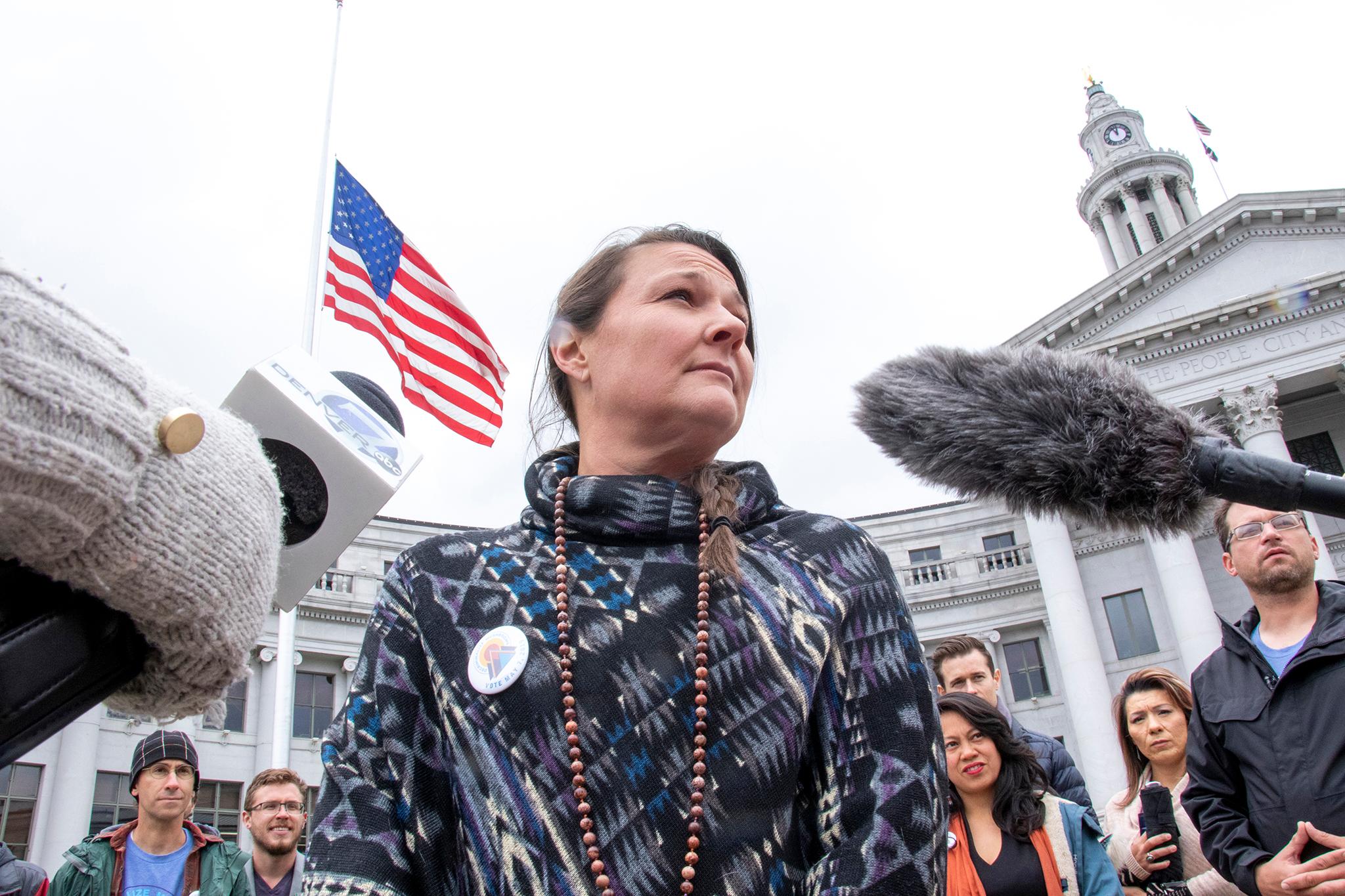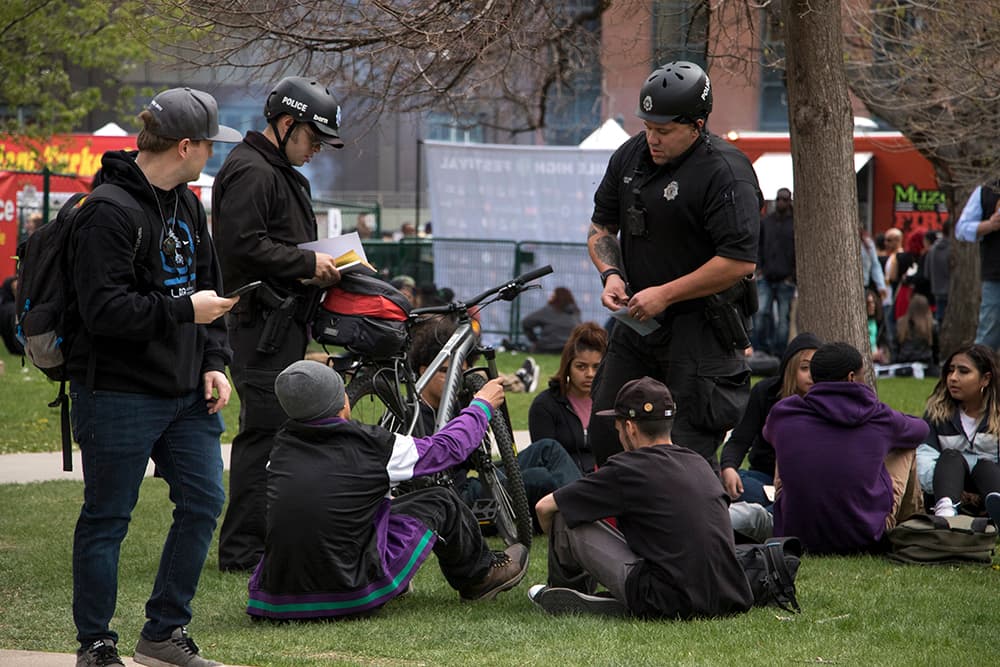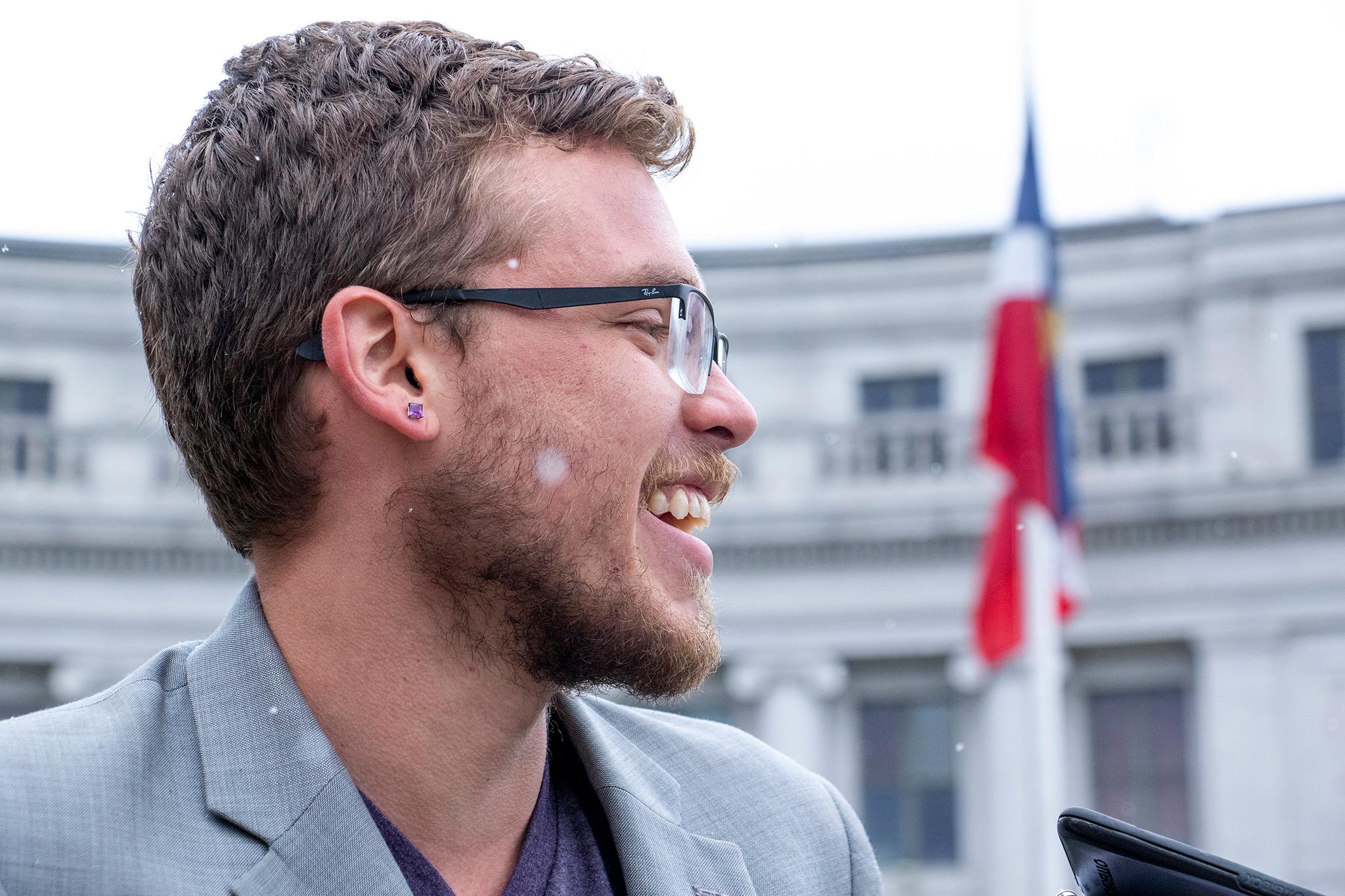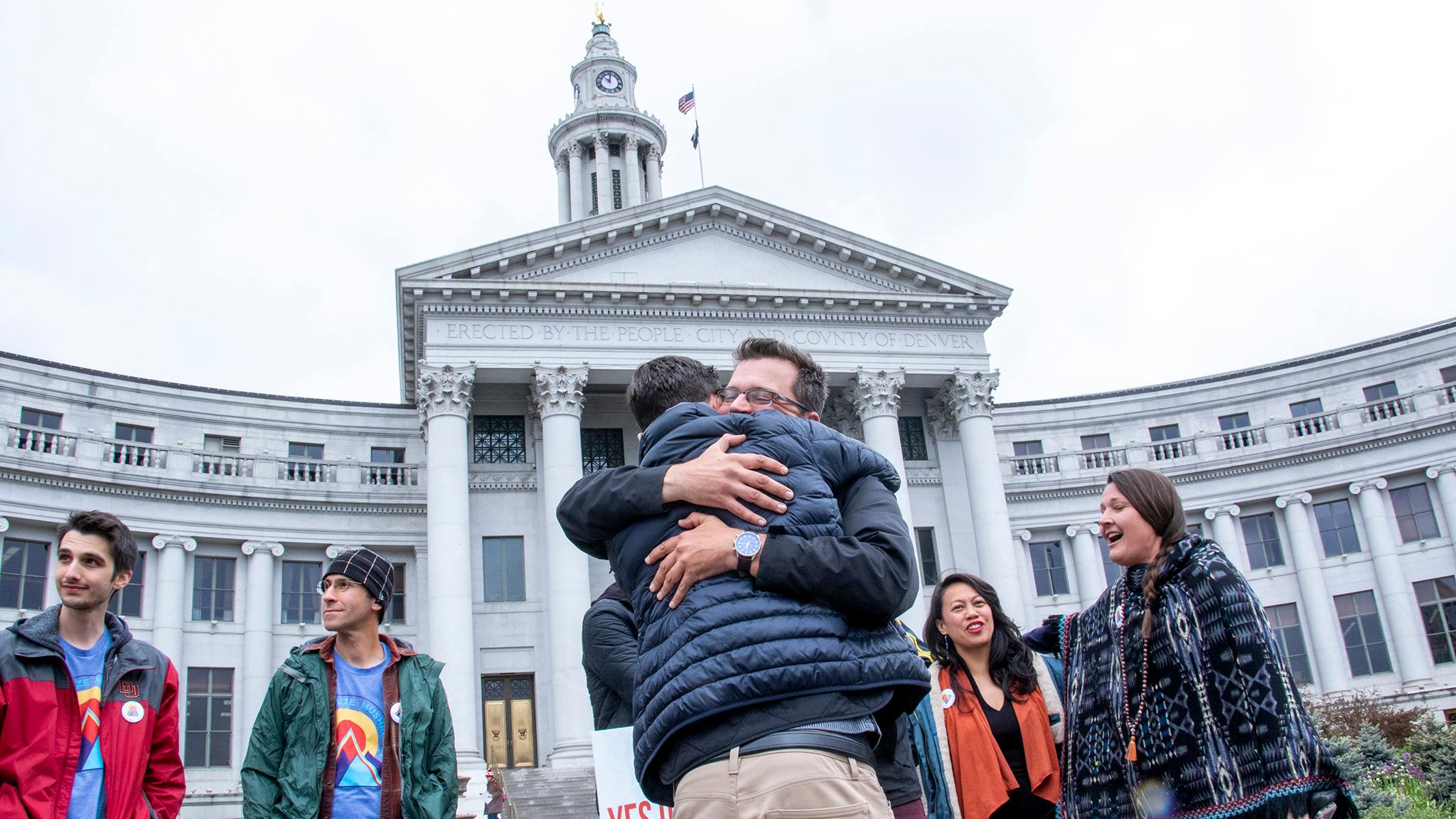So you've decriminalized magic mushrooms.
Or many of your fellow Denverites did, anyway.
The new law decriminalizing psilocybin mushrooms officially takes effect next week, on May 16, once the results of the election are certified. The ballot language didn't have an implementation date.
Kevin Matthews, the campaign director behind the initiative, on Thursday met with supporters near the spot where they carried boxes of signatures to ensure its place on the ballot. He said the initiative passing is what happens when "a small but dedicated" group come together to make a change.
"We have an incredible opportunity right now," Matthews said. "This victory here in Denver is a clear signal to the rest of the country that Americans are ready to start talking about psilocybin mushrooms."
The measure will allow adults 21 and older in Denver to possess, use and cultivate psychedelic mushrooms at home for personal use. It calls for local police officers to make it the lowest possible enforcement priority, meaning they'll be asked not to worry about it as much as other potential violations.
What the law does not do: Legalize psilocybin mushrooms or allow for their public consumption. It will remain illegal to distribute or sell psilocybin mushrooms. No one during Thursday's gathering elaborated on how they currently get their hands on them (though someone pointed out spore kits are readily available online).

The campaign's political advisor Cindy Sovine said it's wrong to think there will be an increase in use now that the law has been approved. A big reason why supporters wanted to pass the law was to increase access to psilocybin mushrooms for medicinal use.
"I think that there is a reality that these substances are already being consumed today and it's happening in the dark, without any kind of oversight or understanding or education around how to mindfully use these substances safely, for themselves or others," Sovine said.
The Denver Police Department is working on figuring out how this will work.
Denver Police Sgt. John White told Denverite on Thursday the department is working with the Denver City Attorney's Office to figure out how the law will be implemented.
It will likely require new officer training, but at the moment it's not clear what that new training will look like.
"We don't know yet. That will depend on what the City Attorney's Office, what their interpretation is," White said.
Ryan S. Luby, a spokesperson for the City Attorney's Office, said the office didn't do an analysis on the law because as an initiative awaiting voter approval, it was totally hypothetical.
"We don't know what that interpretation is because it's so new," Luby said. He added the Denver District Attorney's Office will be handling most of the enforcement (which Luby noted is already pretty low for cases involving mushrooms).
However, he notes there are several parts of the law that will need to be figured out -- like what "personal use" means and the amount of the substance allowed, which the measure doesn't specify -- to ensure it's still the same law voters approved.
"There is a lot to factor in here," Luby said.
One of the initiative's requirements is establishing an 11-member review panel to report back on its impact on public health and safety. The members would be appointed by the mayor's office, which creates another moving piece: we don't know who the next mayor will be yet. (The race is headed for a runoff.) Matthews said the panel is to be created by December, but he's hoping it will happen sooner.
"A lot of people in Denver are going to want to know more about this," Matthews said. "We're also going to want to know how to implement this effectively, with equity and fairness."

Mayor Michael Hancock, who is facing a runoff to keep his job, isn't saying much right now. Responding to all the questions his office was getting on the measure, his office issued a statement Thursday. They asked that other questions be forwarded to the police.
"Mayor Hancock respects the decision of the voters and the Denver Police Department will enforce the law accordingly," the statement said.
Psilocybin mushrooms will remain a Schedule 1 drug. U.S. Attorney for Colorado Jason Dunn, the top federal prosecutor in the state, issued a short statement on the new measure.
"Our position is unchanged. They were illegal under federal law before the vote and are illegal under federal law after the vote," Dunn said in a statement.
Supporters at Thursday's event included people who have used mushrooms for medicinal purposes.
Melanie Rose Rodgers, one of the bill's original sponsors, said psilocybin mushrooms have helped with her depression and anxiety. Eli Katz is another ardent supporter of the mushroom's medicinal properties, as he microdoses the substance to help with pain related to a serious foot injury.

Joey Gallagher volunteered for the initiative and runs the Psychedelic Club of Denver.
"I have a lot of friends who use it medicinally," Gallagher said. "A lot of them are military vets treating PTSD. That's the big irony, is we're trying to fight the government to allow military vets to get their own treatment."
He said he supported the measure because it's a human rights concern.
"We're not telling people to go eat mushrooms. We're saying you have the right to choose if you think that's right," Gallagher said.












